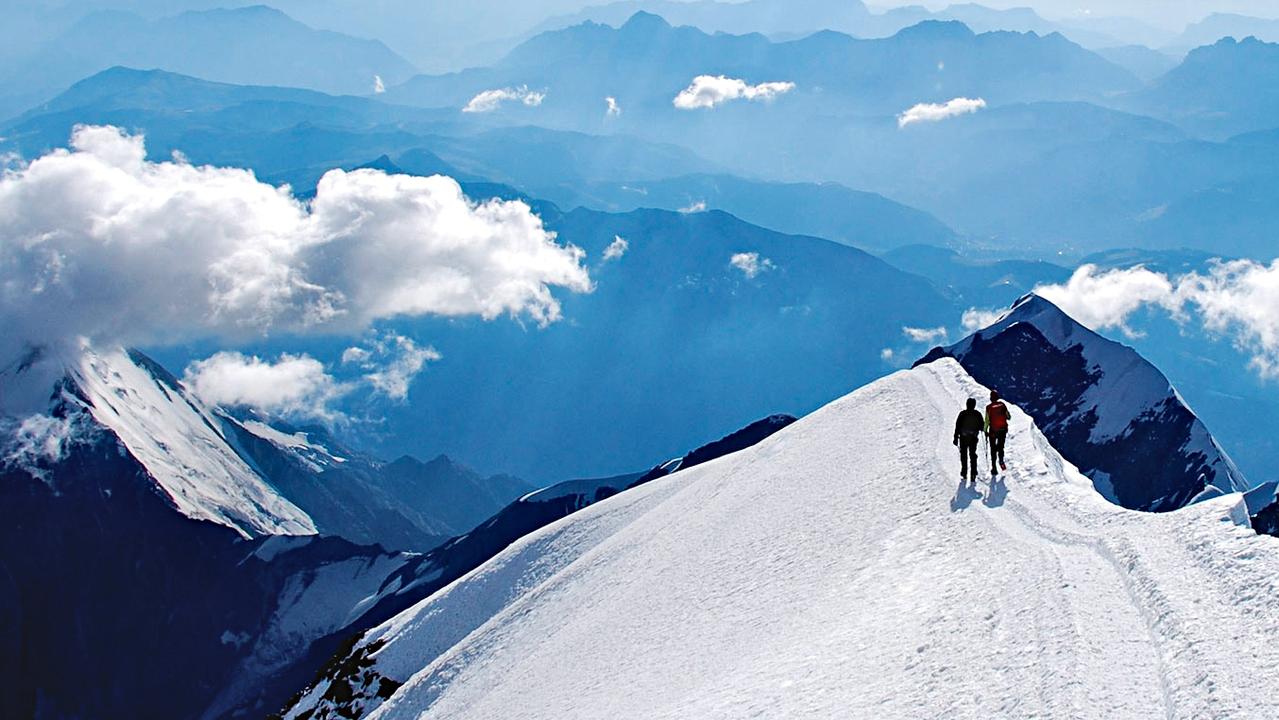Magic happens in land of legend
FEARSOME fire-breathing mother-in-laws aside, the grass really is greener in Wales. Paul Maughan explores a tiny country renowned for its big scenery.

IN WALES the wife's mother apparently rules supreme, elevated to the National Flag. Right there in its centre for the entire world to see, the mighty red dragon of Wales. The mother-in-law.
Well, that's the story I was told when I visited Wales recently. Celts love a tall tale and the place is awash in myth and legend, so believe what you like.
Bulging into the Irish Sea on Britain's western coastline, Wales is tiny (less than one-third the size of Tasmania) but, scenically, it packs a mighty wallop.
This land of light and shade, part of the Celtic fringe of Europe, is a mosaic of medieval castles, ruins, misty valleys, jagged peaks, craggy headlands, sandy beaches, and gorgeous villages with tongue-twisting names. I like the place and its proud but parochial people.
I was tickled at how locals identified themselves as either north or south Welsh, rather than just Welsh, each group slightly disparaging of the other.
Of course, if you hail from over the border in England (at most only 90km away) then you're definitely alien, certainly inferior, and accepted only with a cautious mix of suspicion and pity.
Notwithstanding this, the Welsh remain a hospitable and warm bunch.
There is no denying that their country is one of the most beguiling on the planet.
Hire a car and zigzag a course through the hills, valleys, woodlands and pastures of this pocket-handkerchief nation, and you are in for a staggering bonanza of eye-popping panoramas.
As well as stunning landscapes Wales also has some of Britain's finest beaches.
Pembrokeshire, in the southwest, has popular sandy bathing beaches at the foot of rugged headlands crowned with spectacular clifftop walking tracks that provide astounding vistas.
Reputed to have the most sunshine in the whole of Britain, this premier holiday coastline is peppered with sumptuous new-age spa hotels, hellbent on indulging guests' every whim.
Wales is no slouch when it comes to big cities, either. The capital, Cardiff, only two hours from London, is a pleasing cosmopolitan city which continues to reinvent itself with dazzling success.
One of the most uncongested cities in Britain, it is easy to negotiate and a joy to explore with an unpretentious atmosphere.
Famed for the fantasy castle at its centre and the adjacent Millennium Stadium, home to Welsh rugby, Cardiff gently spills down to its bay side which these days is undergoing a transformation.
Dominated by the award-winning Millennium Centre, the art and theatre mecca of Wales, and the eye-catching waterside St David's Hotel (one of the top 20 hotels in the world), the old docklands are evolving into a trendy restaurant, shop and apartment development. Few cities in Britain have such an appealing blend of old and new.
For the religiously inclined (or the ill), Holywell, an unspectacular coastal town in the north, proclaims itself as the Lourdes of Wales. Famed for miraculous healings, it has been a pilgrimage site since the seventh century.
A more secular-type "miracle'' awaits visitors near Llangollen, a small, handsome northern Welsh border town. The Pontcysyllte Aqueduct, a towering 200-year-old cast-iron trough supported on 18 stone columns, crosses the Dee River here (a dizzying 32m below).
The highest and longest aqueduct in the world, it can be crossed on a footbridge, but the two-hour narrow boat trip from Llangollen Wharf delivers a vertigo-inducing "cruise'' without parallel.
One of northern Wales' more quirky sights is in Conwy, a well-preserved walled medieval city dominated by its huge, imposing 13th-century fortified castle.
Dwarfed in its shadow lurks the smallest house in Britain, one of those blink-and-you'll-miss-it places. The cute but tiny 3 x 1.5 metre red painted one-up-one-down midget, sparsely furnished in mid-Victorian style, sits sandwiched in a row of quayside terraced dwellings.
Wales is, of course, the epicentre in Britain of the male-voice choir. The tradition of song, dance and poetry goes back centuries here but it is the rousing chorus of massed male voices that is so often the focus of its pageantry.
It's the countryside, however, where Wales's appeal lies. Known worldwide for its mountains and valleys, Snowdonia and the Brecon Beacons are its outdoor hubs.
Hiking and bicycling are very popular in these breathtakingly beautiful regions but be prepared for hostile conditions here at any time of the year.
It is easier and just as pleasant to drive this region, as the roads are uncrowded. Mostly you will share them with sheep – about 5.5 million of them.
The journey from Abergwesyn to Tregaron, in central Wales, takes you across the roof of the nation along one of Britain's most spectacular mountain roads.
The weather can be a lottery but if it turns foul, follow tradition - go to the pub where you'll find everything from a lively fireside singalong to a quiet drink, or farm-fresh meals and comfy accommodation.
Sunday Mail (QLD)



